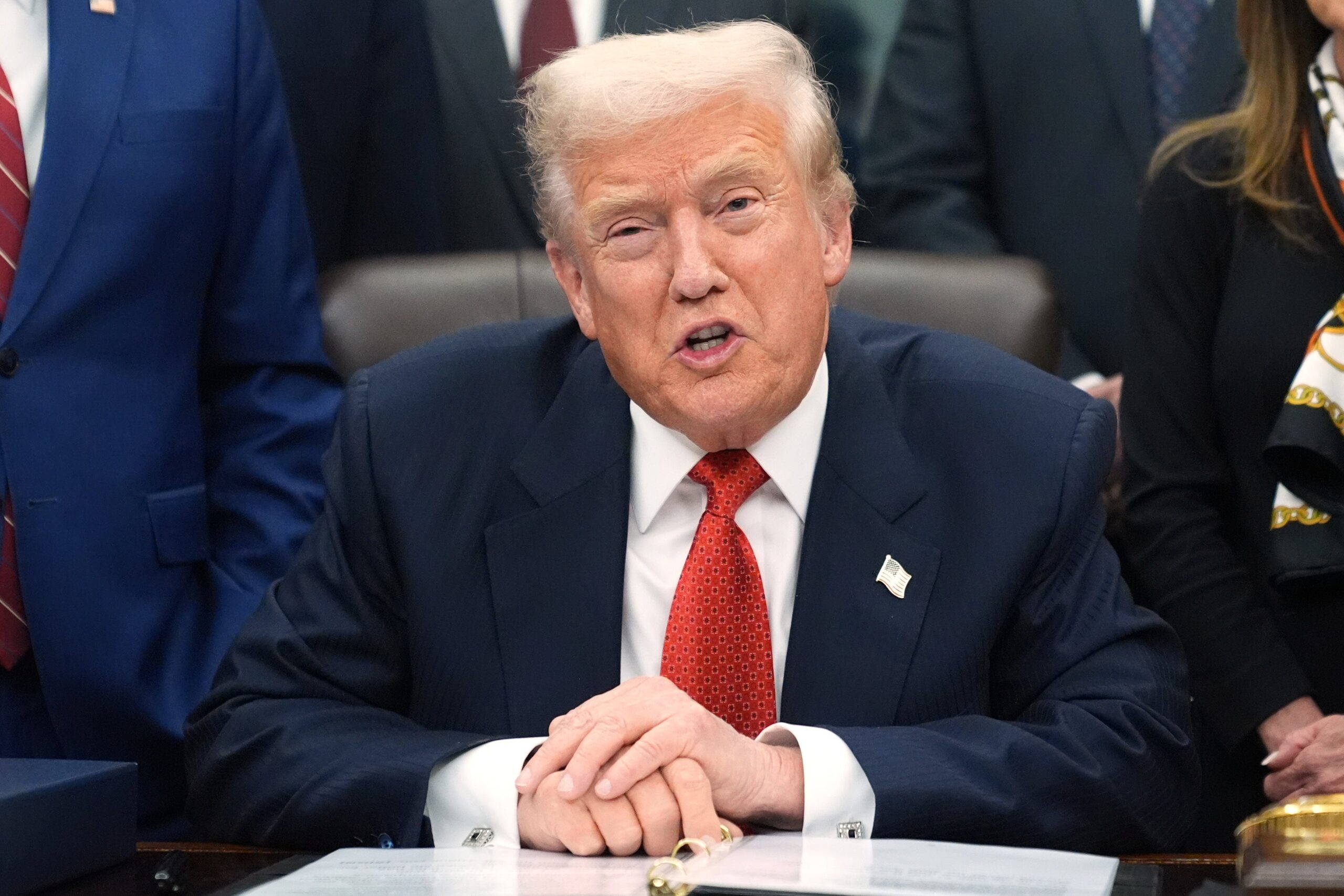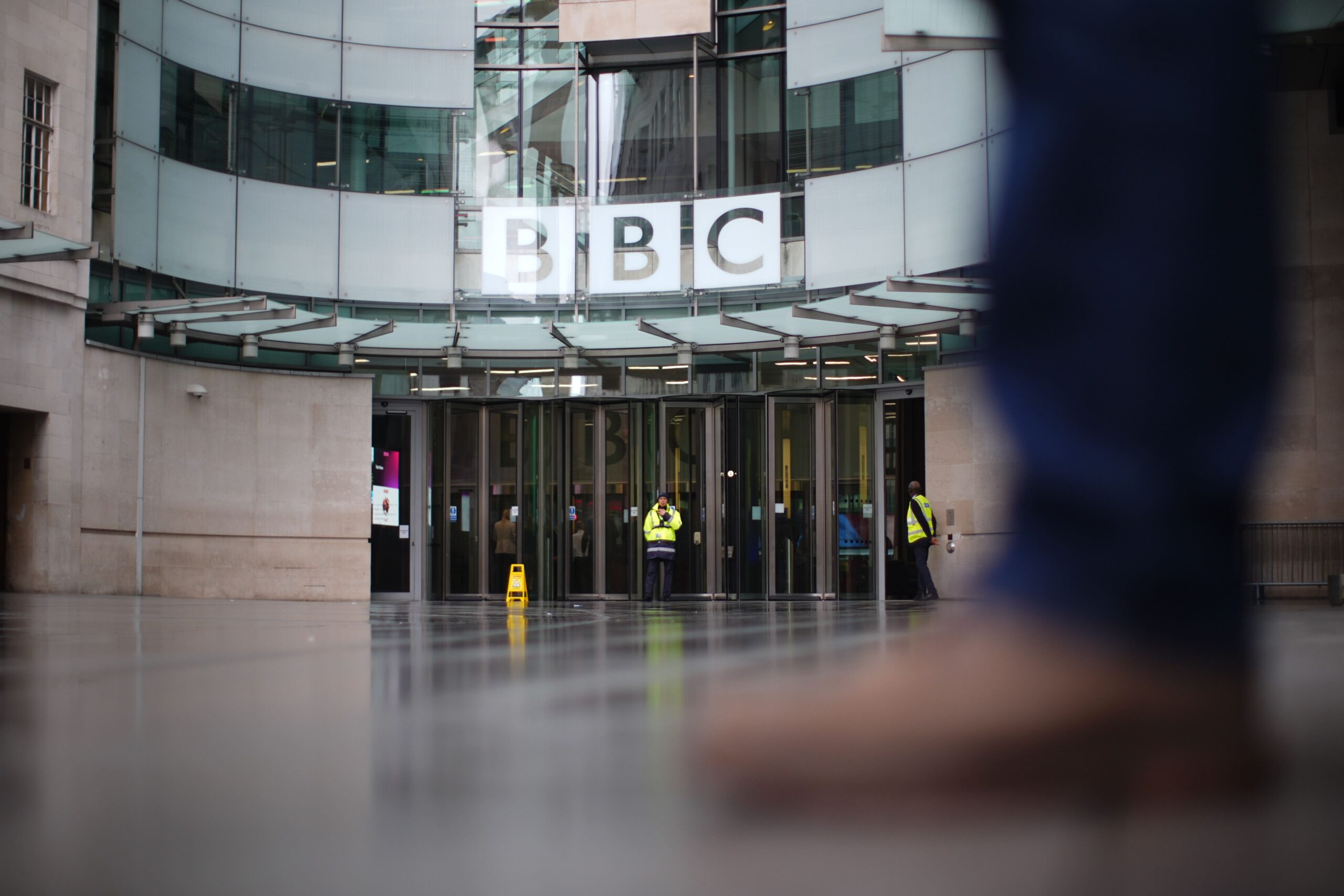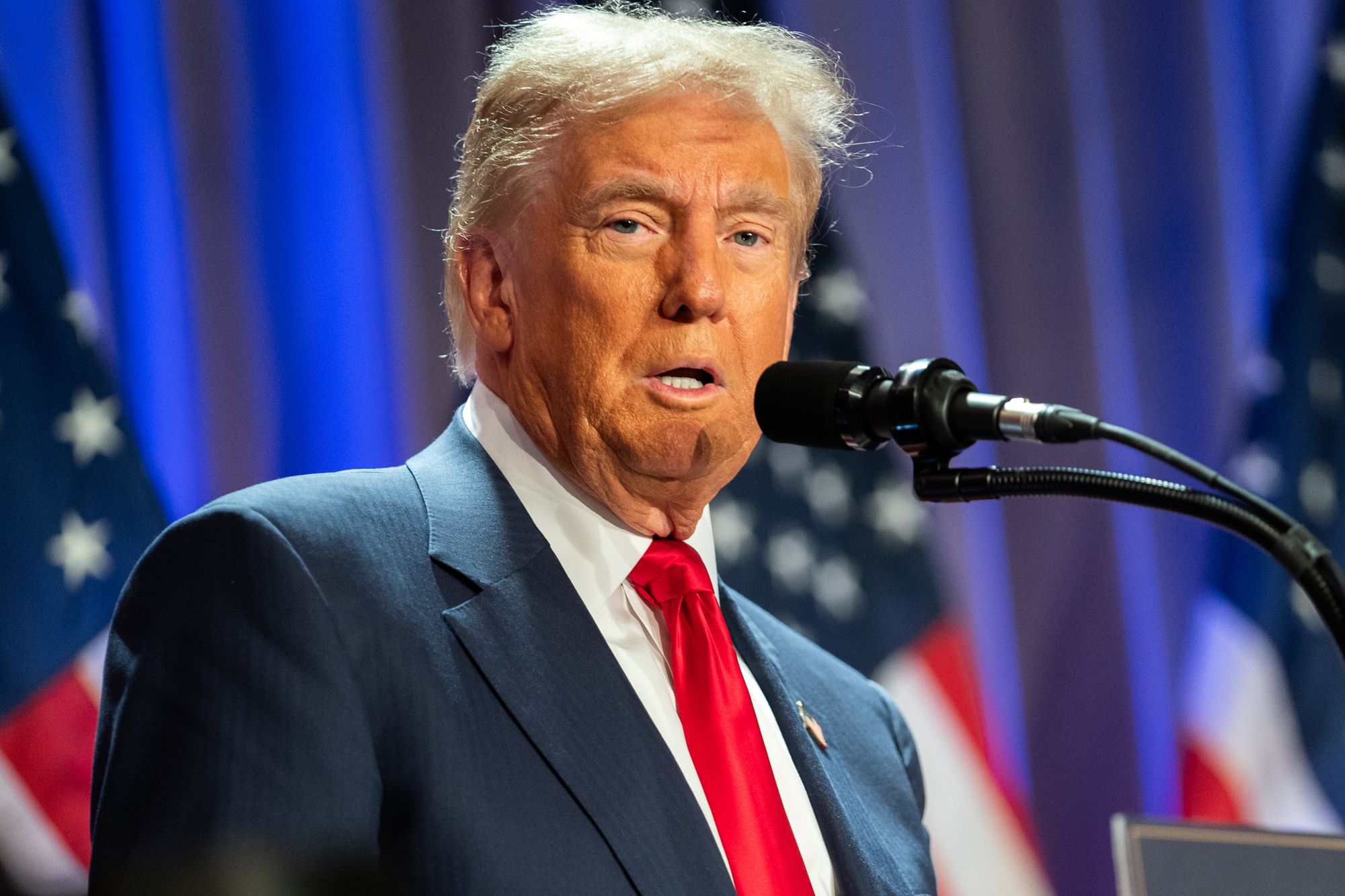The BBC has apologised to Donald Trump over the editing of a speech in a documentary after the US president threatened a $1 billion lawsuit.
The corporation said on Thursday evening that chair Samir Shah sent a personal letter to the White House apologise for how a Trump’s speech appeared in a Panorama episode aired last October.
However, the broadcaster has refused to pay the president compensation, adding that it: “strongly disagrees there is a basis for a defamation claim”.
Trump has threatened to sue the BBC over its editing of the speech, which made it appear as if he was explicitly urging people to attack the US Capitol on January 6 2021. His lawyers had written to the corporation earlier this week demanding a retraction and compensation by Friday.
In a retraction published by the BBC, it said the episode ‘Trump: A Second Chance?’, “will not broadcast again in this form on any BBC platforms”.

The retraction said: “This programme was reviewed after criticism of how President Donald Trump’s 6th January 2021 speech was edited.
“During that sequence, we showed excerpts taken from different parts of the speech.
“However, we accept that our edit unintentionally created the impression that we were showing a single continuous section of the speech, rather than excerpts from different points in the speech, and that this gave the mistaken impression that President Trump had made a direct call for violent action.
“The BBC would like to apologise to President Trump for that error of judgement.”
It comes amid reports that the corporation faced accusations of misleading viewers on Mr Trump’s US Capitol speech more than two years before the controversial Panorama edit aired.
In an episode broadcast in June 2022, Newsnight reportedly played an edit of the US president’s speech which was similar to the one used in a Panorama programme in October 2024 – both of which made it appear as if he was explicitly urging people to attack the Capitol.
A BBC spokesperson said in response to the fresh claims, reported by The Daily T podcast, that: “The BBC holds itself to the highest editorial standards. This matter has been brought to our attention and we are now looking into it.”
The president, who has not yet responded to the BBC’s letter, said earlier this week that has said he had an “obligation” to launch legal action against the corporation.

He said in an interview with Fox News that the BBC had “defrauded the public” over the editing of the speech, which made it appear as if he was explicitly urging people to attack the US Capitol.
Two of the BBC’s most senior figures, director general Tim Davie and chief executive of news Deborah Turness, resigned over the furore, which was sparked by the leaking of a memo written by Michael Prescott, a former external adviser to the BBC’s editorial standards committee.
The note shared concerns about institutional bias within the corporation and said the way clips of Mr Trump’s speech were spliced together in the 2024 episode made it appear he had told supporters he was going to walk to the US Capitol with them to “fight like hell” – removing a section where Mr Trump said he wanted supporters to demonstrate peacefully.
Addressing staff on Tuesday morning, Davie admitted the organisation had “made some mistakes that have cost us”, but hit out at the BBC’s “enemies” and urged colleagues “to fight for our journalism”.
Mr Trump has filed lawsuits against media companies before, including The New York Times and CNN.
In a letter sent to the BBC, his lawyer, Alejandro Brito, demanded that “false, defamatory, disparaging, and inflammatory statements” made about Mr Trump be retracted immediately and said the BBC has violated Florida’s defamation law.

On Monday, Mr Shah issued an apology from the corporation over the “error of judgment” in the editing of the speech for the Panorama episode.
Responding to a letter from the Culture, Media and Sport Committee, Mr Shah said that there had been more than 500 complaints since the publication of the Michael Prescott memo, which raised concerns about the Panorama episode, adding: “We accept that the way the speech was edited did give the impression of a direct call for violent action.”
